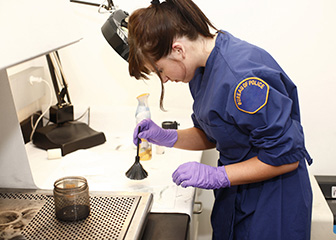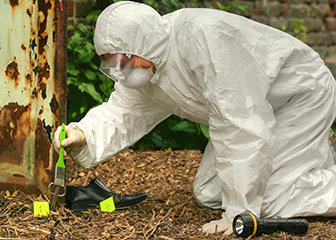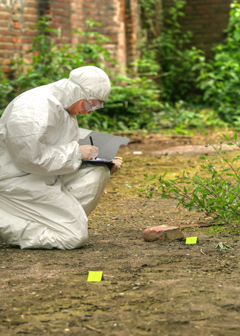Summary

| Quick Facts: Forensic Science Technicians | |
|---|---|
|
$51,570 per year
$24.79 per hour |
|
| Bachelor’s degree | |
| None | |
| Moderate-term on-the-job training | |
| 13,000 | |
| 19% (About as fast as average) | |
| 2,400 | |
What Forensic Science Technicians Do
Forensic science technicians help investigate crimes by collecting and analyzing physical evidence. Most technicians specialize in either crime scene investigation or laboratory analysis.
Work Environment
Crime scene investigators may work long hours under distressing conditions. Most laboratory forensic science technicians work full time during normal business hours.
How to Become a Forensic Science Technician
Educational requirements for crime scene investigators vary by employer. Forensic science technicians who work in laboratories need a bachelor’s degree.
Pay
The median annual wage of forensic science technicians was $51,570 in May 2010.
Job Outlook
Employment of forensic science technicians is expected to grow by 19 percent from 2010 to 2020, about as fast as the average for all occupations. Competition for jobs will be strong because of substantial interest in forensic science.
Similar Occupations
Compare the job duties, education, job growth, and pay of forensic science technicians with similar occupations.
O*NET
O*NET provides comprehensive information on key characteristics of workers and occupations.
Contacts for More Information
Learn more about forensic science technicians by contacting these additional resources.








